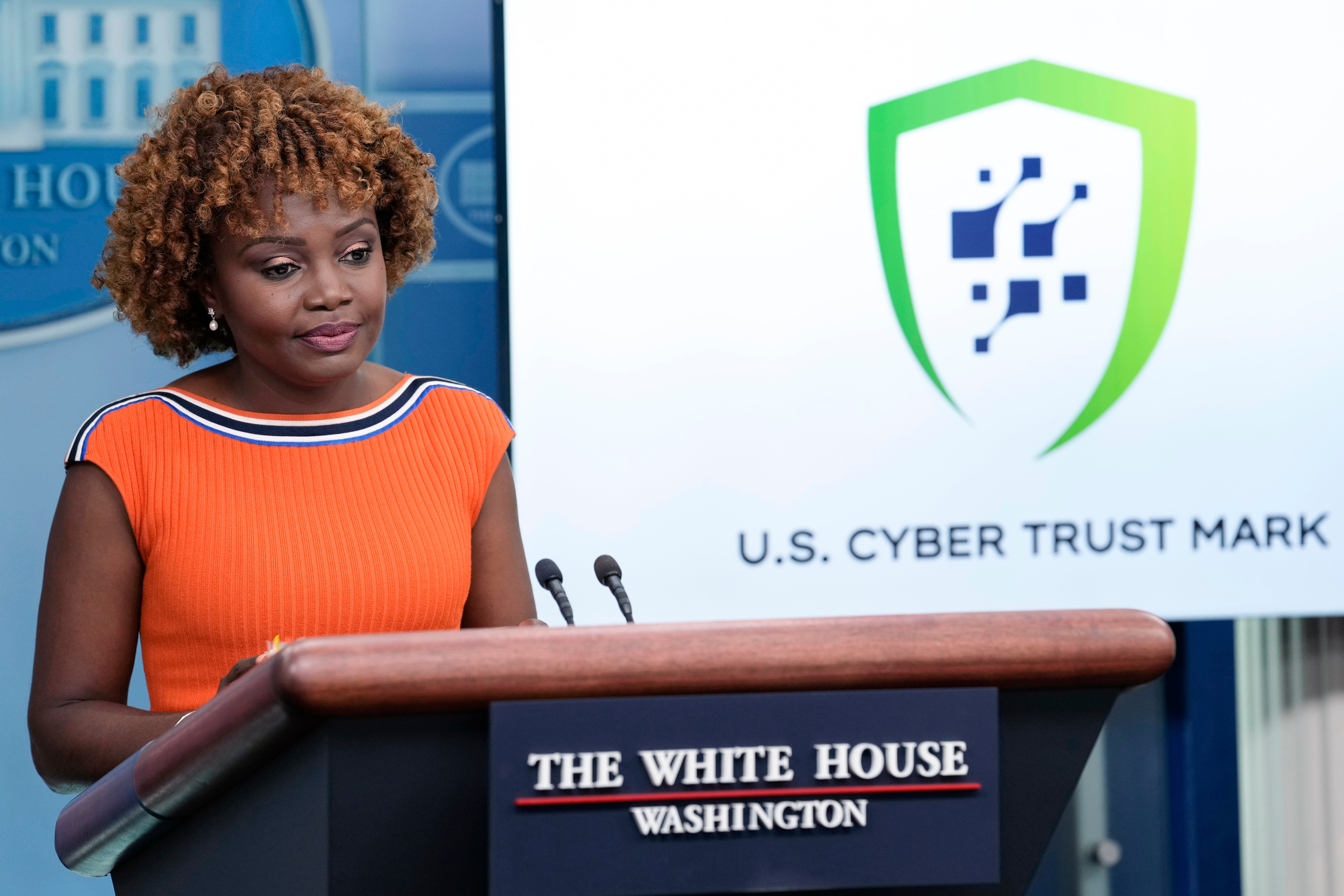Cybersecurity labeling for smart devices aims to help people choose items less likely to be hacked
Smart devices like baby monitors, fitness trackers and internet-connected appliances will soon be eligible for labels certifying that they meet federal cybersecurity standards

Your support helps us to tell the story
From reproductive rights to climate change to Big Tech, The Independent is on the ground when the story is developing. Whether it's investigating the financials of Elon Musk's pro-Trump PAC or producing our latest documentary, 'The A Word', which shines a light on the American women fighting for reproductive rights, we know how important it is to parse out the facts from the messaging.
At such a critical moment in US history, we need reporters on the ground. Your donation allows us to keep sending journalists to speak to both sides of the story.
The Independent is trusted by Americans across the entire political spectrum. And unlike many other quality news outlets, we choose not to lock Americans out of our reporting and analysis with paywalls. We believe quality journalism should be available to everyone, paid for by those who can afford it.
Your support makes all the difference.Consumer labels designed to help Americans pick smart devices that are less vulnerable to hacking could begin appearing on products before the holiday shopping season, federal officials said Wednesday.
Under the new U.S. Cyber Trust Mark Initiative, manufacturers can affix the label on their products if they meet federal cybersecurity standards. The types of devices eligible for labels include baby monitors, home security cameras, fitness trackers, refrigerators and other internet-connected appliances.
The White House first announced the “Cyber Trust” labels last year and the Federal Communications Commission finalized the details in March, clearing the way for the labels to start showing up in several months.
“You should hopefully, by the holiday season, start to see devices that have this trustmark on it,” said Nicholas Leiserson, the assistant national cyber director for cyber policy and programs. Leiserson made his comments Wednesday during a cybersecurity panel at Auburn University’s McCrary Institute in Washington.
The labels will also include QR codes that consumers can scan for security information about their devices.
Officials have likened the labels to the Energy Star program, which rates appliances’ energy efficiency, and say the idea is to empower consumers while also encouraging manufacturers to enhance their cybersecurity.
Amazon, Best Buy, Google, LG Electronics USA, Logitech and Samsung are among industry participants.
The proliferation of so-called smart devices has coincided with growing cybercrime in which one insecure device can often give cyberintruders a dangerous foothold on a home network.